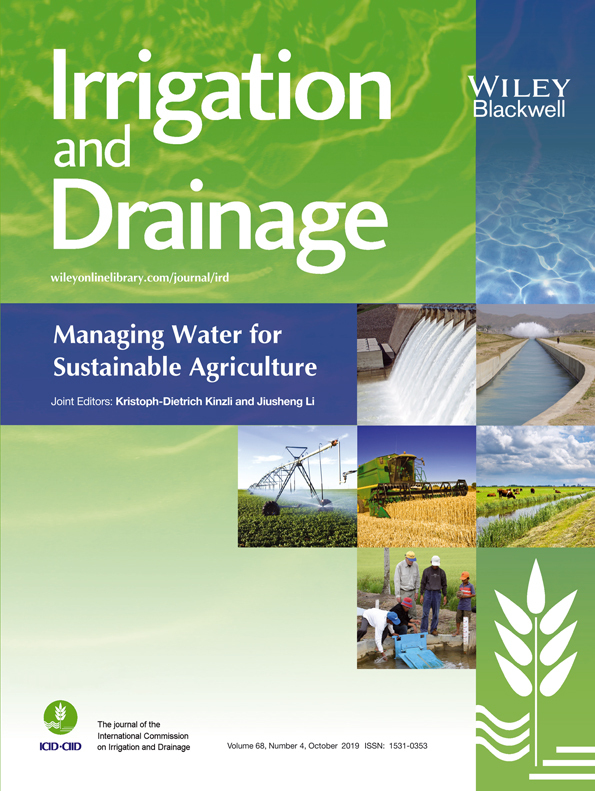PRIORITIZING LAND AND WATER INTERVENTIONS FOR CLIMATE-SMART VILLAGES†
Abstract
enClimate-smart villages mean implementing a portfolio of best locally suited climate-smart agricultural practices in an integrated manner to build resilience of the local community. Land and water interventions form a crucial part of a climate-smart agricultural practices portfolio, with water availability being the key limiting factor of crop growth. To aid in this decision-making process of prioritizing land and water interventions, a simple and robust spreadsheet tool based on a water balance is developed. The tool integrates and simulates impacts of land and water interventions on the water balance to determine their impact across climate-smart agricultural objectives of agricultural productivity, climate change adaptation and mitigation. The tool was implemented in two villages in the state of Madhya Pradesh, India. The tool performs well in simulating village water balance and its impact on the yield of rainfed and irrigated crop areas. Results show that considerable differences exist within the portfolio of land and water interventions, with only a combination of supply, demand and moisture conservation practices being able to help achieve climate-smart agricultural objectives. In the best case scenario, yield can be increased by up to 10% and greenhouse gas emission intensity reduced up to 17%. Comparison with stakeholder perception analysis highlights the utility of this tool in providing additional quantitative information in the decision-making process. © 2019 John Wiley & Sons, Ltd.
Résumé
frLes villages intelligents face au climat impliquent de mettre en œuvre un portefeuille des pratiques agricoles intelligentes adaptées au climat local, de manière intégrée pour renforcer la résilience de la communauté locale. Les interventions sur les terres et les eaux font partie intégrante du portefeuille de pratiques agricoles intelligentes face au climat, la disponibilité de l'eau étant le principal facteur limitant de la croissance des cultures. Pour faciliter ce processus décisionnel de priorisation des interventions relatives aux terres et à l'eau, un tableur simple et robuste, basé sur l'équilibre de l'eau, est développé. L'outil intègre et simule les impacts des interventions terrestres et hydriques sur le bilan hydrique afin de déterminer leur impact sur les objectifs agricoles intelligents face au climat de productivité agricole, d'adaptation au changement climatique et d'atténuation de ses effets. L'outil est mis en œuvre dans deux villages de l'état du Madhya Pradesh, en Inde. Cet outil simule bien le bilan hydrique du village et son impact sur le rendement des cultures pluviales et irriguées. Les résultats montrent qu'il existe des différences considérables au sein du portefeuille d'interventions sur les terres et les eaux, et que seule une combinaison de l'offre et de la demande et de la conservation de l'humidité pourrait aider à atteindre les objectifs d'agriculture intelligente face au climat. Dans le meilleur des cas, le rendement peut être augmenté jusqu'à 10% et l'intensité des émissions de gaz à effet de serre, jusqu'à 17%. La comparaison avec l'analyse de la perception des parties prenantes met en évidence l'utilité de cet outil pour fournir des informations quantitatives supplémentaires dans le processus de prise de décision. © 2019 John Wiley & Sons, Ltd.




